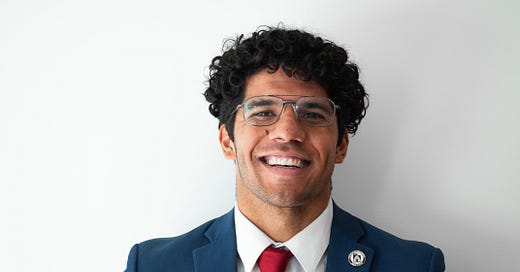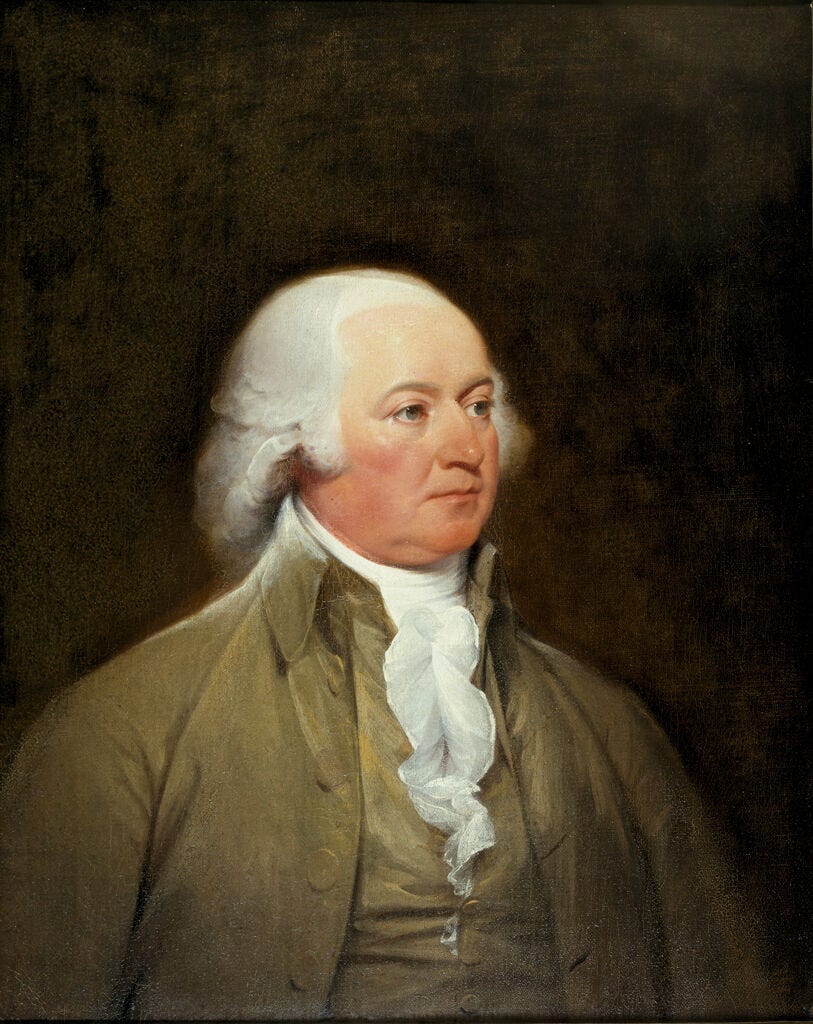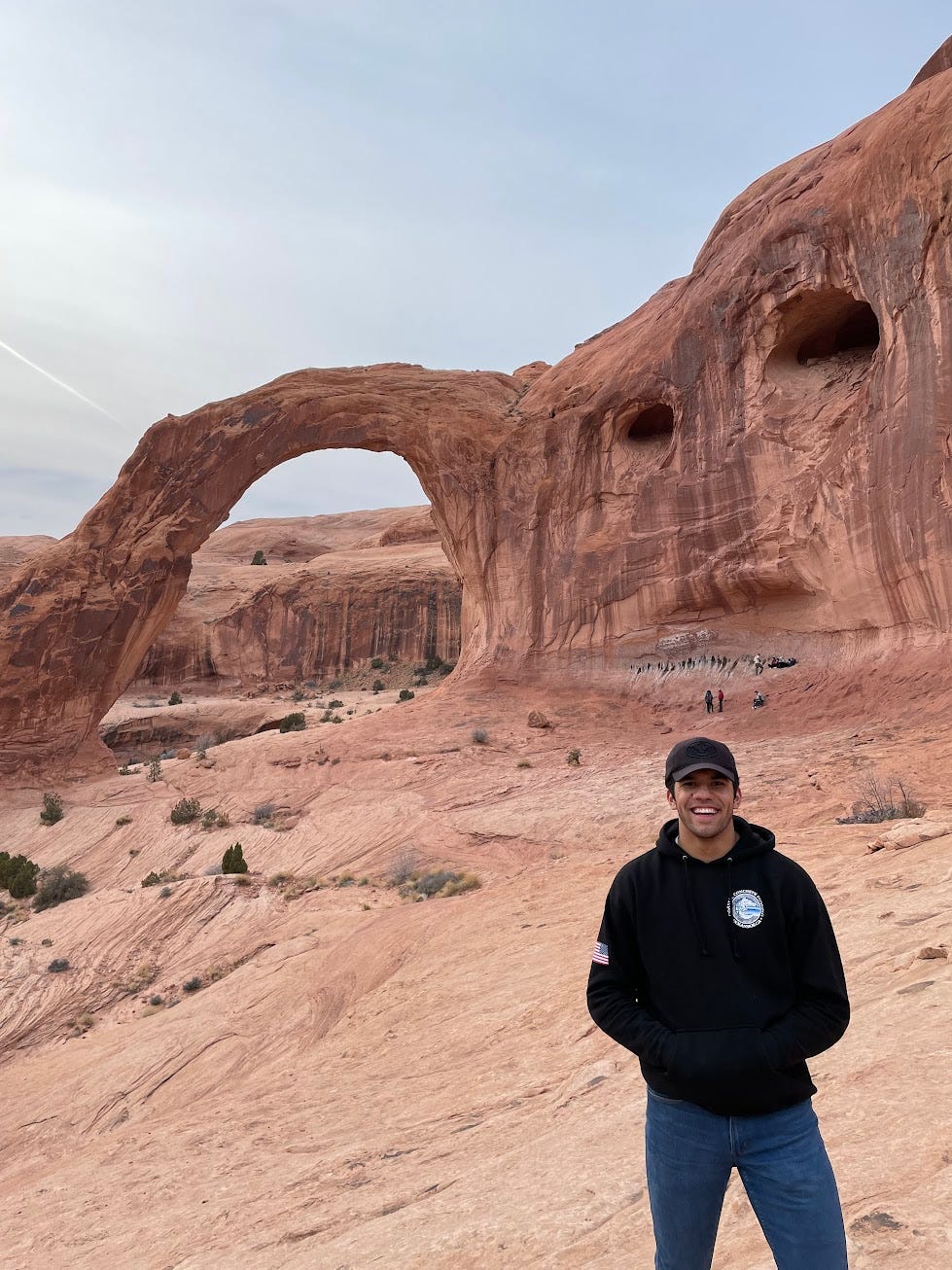This week we’re excited to introduce you to our new Model Leader Intern: Jonah Harris. Jonah is joining us from BYU, where he is studying history and supporting the Sorensen Center for Moral and Ethical Leadership as a coach. In the post, he will continue our monthly theme on the leadership value of remembering.
I was asked to introduce myself, and I’ve always felt it awkward to do so in writing, but I try to do what I’m asked to. So, my name is Jonah Harris, and I am the newest addition to Model Leader! I’m from Oceanside, California and just finished at BYU where I worked as a leadership coach and studied History with a particular interest in the American Revolutionary period. I’ve always enjoyed sports of nearly any kind, my favorite number is eleven because I decided it would be in third grade, and my favorite historical figure is John Adams.
With formal introductions out of the way, I would like to tell you a story about a time when history and leadership blended in a perfect harmony for me.
Like most people, 2020 was an incredibly difficult year for me. Unlike most people, it had very little to do with COVID-19. I had just started at BYU in the Fall of 2019, and I thought I was going to fly through BYU with straight A’s and a remarkable amount of semesters spent on the Dean’s List. However, much to my dismay, that first semester was actually pretty challenging. And the second semester was even more challenging, especially with the COVID pandemic starting halfway through it and forcing college students from classrooms and into little squares on Zoom calls.
By the end of my third semester—the Fall of 2020—I had switched majors to Political Science, but I was still struggling immensely. Surprisingly, college was hard. I started to think that I was in over my head, that maybe I wouldn’t cut it after all.
Noticing my dismay and discouragement (I was pretty vocal about it, like, all the time), my cousins Pam and Naioka decided to bring me with them to Boston for New Years at our uncle’s house. It was a much needed change of scenery in and of itself, but it became transformational when, one night, my uncle came downstairs to the couch I had made my temporary residence.
“Jonah,” he said, almost cautiously, “I feel like I should give this to you.” and handed me a thick book. I turned it over, John Adams by David McCullough.
“John Adams?” I scoffed. “Isn’t he the ‘other’ Founding Father?”
“Well, that’s one of the reasons I wanted to give this to you. I think he is incredibly underrated; he was the glue that kept the Revolution together. I really think you should read it.”
Because I love my uncle, I accepted the book and, because I love my uncle, I read the first few pages. And then I read the first ten. And then I read twenty. Before I knew it, it was 3am and I was still in basically the same spot, completely engrossed in the book.
What had caught me the most was what I saw as a striking similarity between Adams and myself. At roughly the same age as I was in that moment, John Adams was similarly struggling with “fits of melancholy”, as he called them, and struggled to keep a meaningful daily schedule. At 20, he was teaching at a grammar school in Worcester, Massachusetts, and wrote once in his journal that he feared he would never achieve anything remotely approximating the visions of grandeur in his head and the feeling that he would do some great thing in his heart.
Reading that, I finally set the book down on my chest and had what is probably the most profound realization of my life. If John Adams, who led a life worthy of a novel-length biography, whose actions and writings and efforts were vital to the cause of American liberty, and who would go on to become one of the central figures of a history and a people that were, at the time of his teaching career, yet uncreated—if a man of that caliber and significance struggled with the same feelings of inadequacy and failure that I did at precisely the same age and still rise above them, then maybe there was hope for me yet.
Because of John Adams, I decided to pick myself back up and push forward with school, regardless of the difficulty. When things felt overbearing, I remembered his example of perseverance and determination in spite of feelings of failure or inadequacy. That book, and that president, sustained me in my hard moments in a way I can’t fully express. I’m grateful and proud to be graduating with a degree in history, a 3.9 GPA and having participated in studies abroad, conferences, and leadership development during the subsequent years.
I think there are a number of leadership principles here, but I’ll stick with one, written by John Adams’ son, and perhaps our finest Secretary of State, John Quincy Adams:
“If your actions inspire others to dream more, learn more, do more and become more, you are a leader.”
Just two years shy of 200 years after John Adams died (fun fact: he died on July 4, 1826—the exact same day as Thomas Jefferson), he is still a leader because his actions inspire me to do exactly as his son wrote—dream more, learn more, do more, become more.
Leadership isn’t always personal. At times, it can be a story someone learned from you that they use to inspire another. At others, the memory of your unspoken example quietly shapes how another person acts. Sometimes, it’s 200 years later and a biography written about you that was turned into a hit HBO miniseries inspires a college student to persevere through pain and pursue his dreams with daring and tenacity.
Leadership is truly leadership when it takes the form of inspiration.
Signing off,
Jonah








You will do great things! An honor to be one of your greatest spectators. Your experiences & growth, are a true asset to anyone you come in contact with.
“If your actions inspire others to dream more, learn more, do more and become more, you are a leader.”
Brilliant quote!!